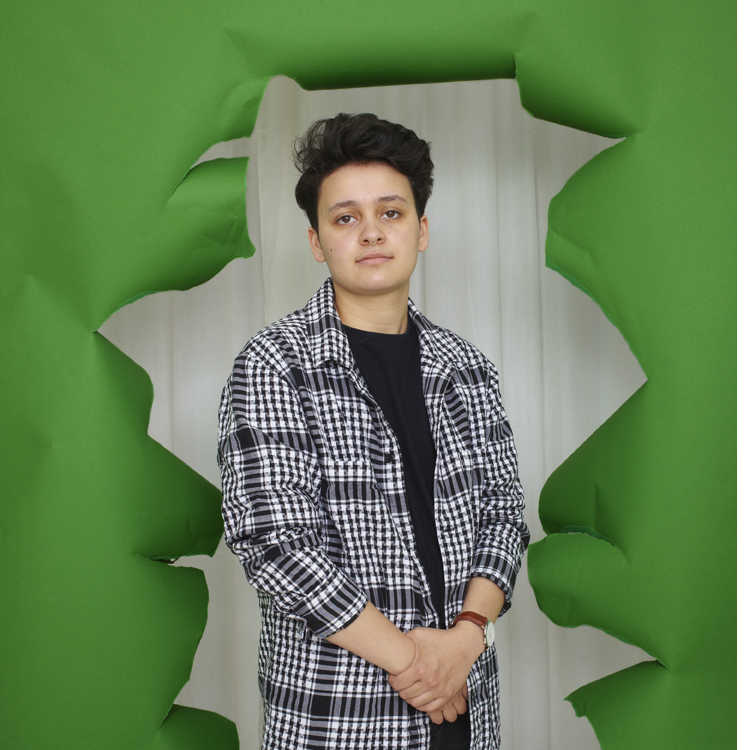I was raised by my Surinamese mother in a white village called Dieren. There was no Surinamese community there, only a Turkish and Moroccan community. I went to a posh white school. Growing up in Dieren made me super aware of the fact that I am a person of color. This has become a very important part of my identity. As a teenager I took refuge on the internet, trying to find my trans identity. I ended up in a left-wing and queer corner of the internet. Gradually becoming more left and queer, unlike my schoolmates who stayed just the same. Zwarte Piet wasn’t a racist caricature to anyone at school, not even to my fellow students of color. There was only an American exchange student who agreed with me.
All this made my urge to go to Amsterdam even bigger. On top of that, I wanted to find my Surinamese community. In Dieren I formed my identity around my ethnicity, but in Amsterdam I didn’t really feel Surinamese as I didn’t grow up surrounded by Surinamese people. I wasn’t considered a person of color either because I am “white passing” in Amsterdam. This sparked some questions about my identity such as: “Can I still say that I am Surinamese-Dutch if I don’t experience racism because of my light skin color?”
My gender identity doesn’t fit into a box, my sexuality doesn’t, my race/ethnicity doesn’t. On the one hand it’s a struggle. On the other hand I’ve struggled less trying to fit into a box, since I knew I can’t. Some of my identities are even seen as mutually exclusive. Trans people and queer people by default are imagined to be white. One often assumes queer people of color to be non-religious and that they’re not in touch with their families (anymore).
I find it hard that I haven’t come out to my extended family yet, since I have an aunt who’s a very religious Muslim. I don’t want to enforce any stereotype when discussing this with others. Also, people wouldn’t expect my mum to be lesbian or my sister to be bisexual. Non-binarity is always something you first have to explain before they condemn you, while if you tell people you’re lesbian, they’ll tell you right away if they don’t accept you. I always thought about my sexuality that “it’s just an issue for the future, I’ll tell them later.” But then I realized that I’m trans. Well, as long as they’re not bringing it up, I won’t.
In my coming-out, Man.ish Cave has played an important role, because it’s a specific group for BIPOC Transmasculine people. I guess I needed to meet people who are really like me to find out who I am. Like how do you know that you are a trans person of color if you only know white trans people? I also like Man.ish Cave because they bring different social justice movements together. Anti-racism is stronger when it includes LGBT+ people and the LGBT+ movement is stronger when it doesn’t only work for white cis gay men. Just try it, it’s really not that hard.
In general I’m for activism everywhere in all kinds of forms. We need grassroots activism, we need activists in politics. I myself study statistics as it’s an important tool for policies. Later I’d want to go into artificial intelligence. Bias in algorithms shows that the field could really use more people like us. I could also see myself as an activist comedian. I’ve always been a light-hearted activist. In front of a camera I’m always laughing and smiling. Here I wanted to look proud, show that I stand for who I am. That’s what I tried at least.

